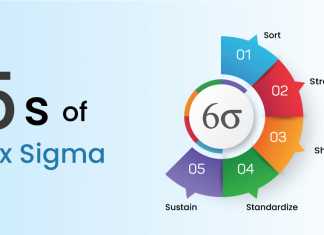Quality Assurance Manager Key Roles and Responsibilities
The quality of a product is often the difference between a trusted brand and a forgettable one, and at the center of that difference is the Quality Assurance (QA) Manager. Far from a back-office...
Understanding Six Sigma in the Energy Industry
The energy industry is a critical sector that plays a vital role in powering our daily lives. With the increasing demand for energy and the need to reduce costs and improve efficiency, it has...
Effective Lean Six Sigma Waste Elimination Techniques
“Quality” is not just limited to some standardized values. It represents the extent to which a product or service matches the customer's requirements. Six Sigma’s deviations use a bell curve, which encourages the organization to...
Understanding Six Sigma in the IT Industry
The impact of Six Sigma on IT processes has been significant, with many companies using Six Sigma to streamline and optimize their IT operations. The Six Sigma approach provides a structured and systematic way...
What is Performance Testing? A Comprehensive Guide
Imagine launching a major product sale, only to watch your website crash under the weight of eager customers. Or picture users abandoning your mobile app because it takes five seconds to load a single...
Understanding 5S in Six Sigma for Efficiently
What is 5S Method in Six Sigma?
5s will change your life and your organization. Many people assume that "5s is just about being clean and being organized", "it was created for the neat freaks."...
Understanding Six Sigma Project Selection Criteria
The Lean Six Sigma methodology is implemented to significantly improve business processes. There is an in-depth focus on reducing and eventually eliminating waste and inefficiency. Eradicating problems and improving working conditions creates a more...
Understanding Six Sigma in Software Development
Six Sigma, a methodology traditionally associated with manufacturing, has found a valuable place in software development processes. By reducing defects and variability, Six Sigma enhances the quality and performance of software products.
The blog will...
Six Sigma in Pharmaceutical Industry Explained
The term "Six Sigma" refers to the statistical measure of near-perfection, intending to achieve six standard deviations between the mean and the nearest specification limit. The methodology applies to many industries and is used...
Top 30 Quality Manager Interview Questions for 2026
Looking to ace your Quality Manager interview in 2026? You’re not alone. According to hiring trends, roles in quality management and assurance are among the most in-demand in manufacturing, IT services, and healthcare; yet,...


























